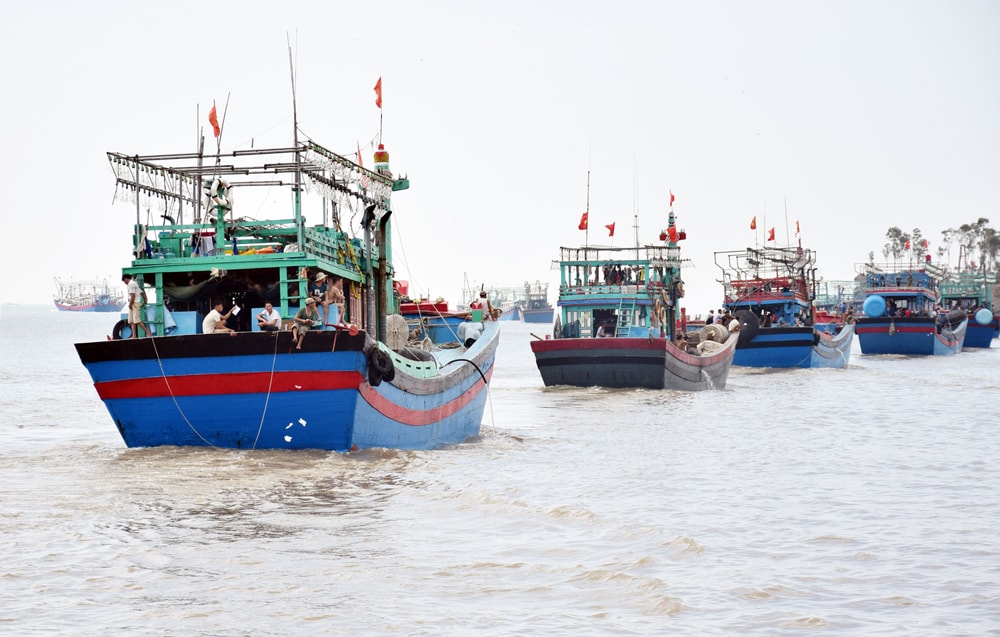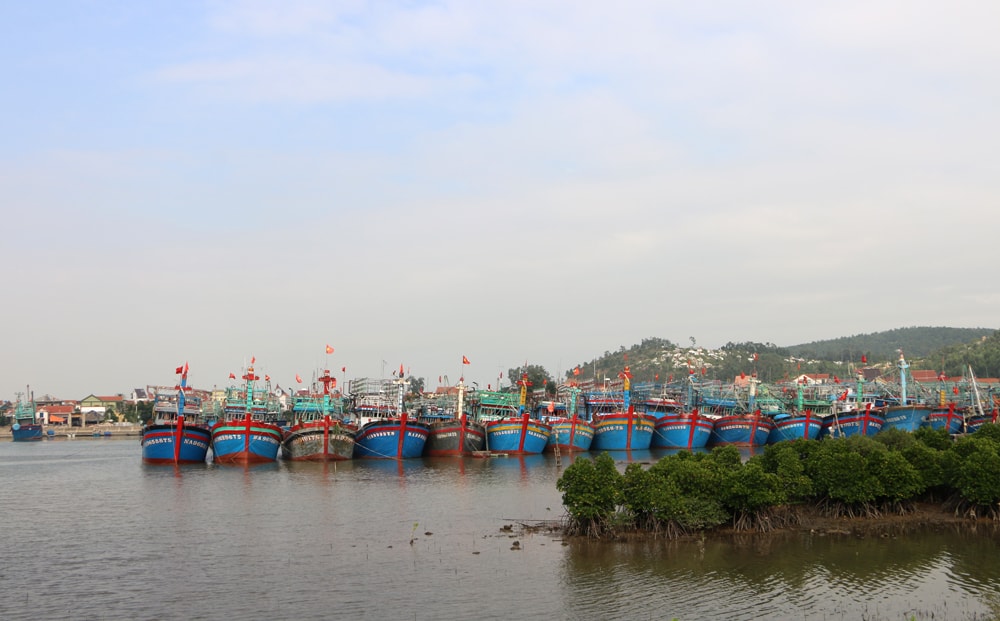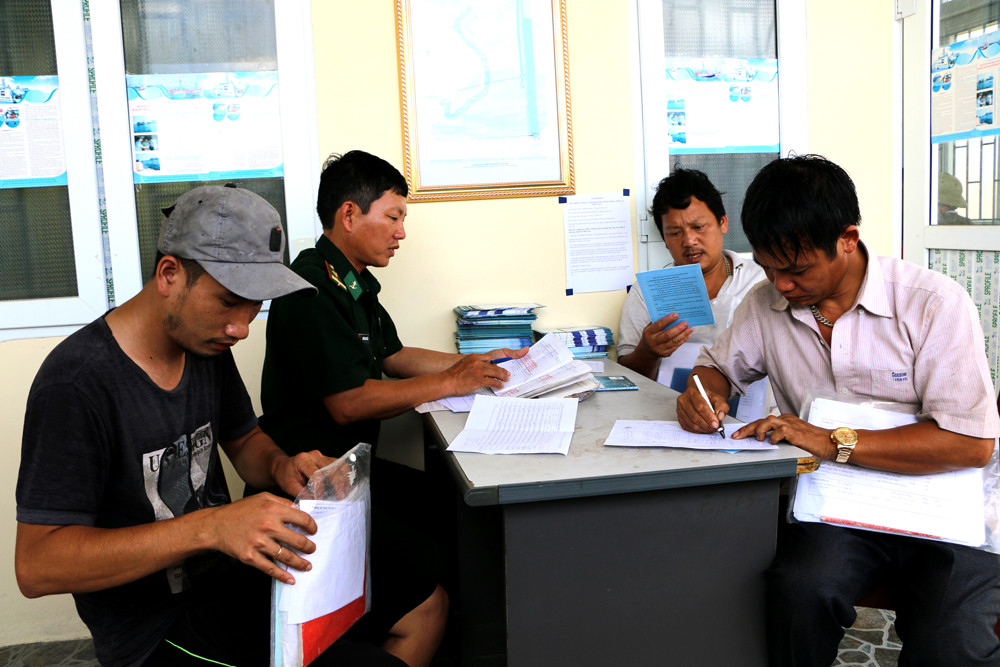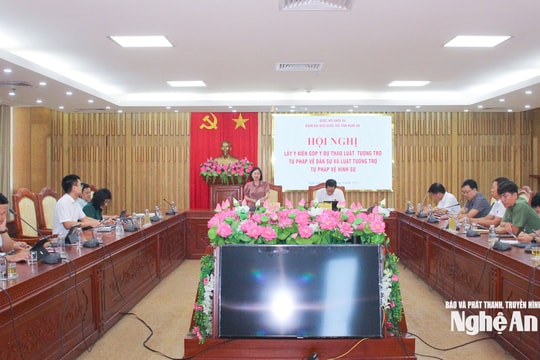Continue to license fishing vessels in the common fishing zone of the Gulf of Tonkin
(Baonghean.vn) - The above information was confirmed by Mr. Tran Nhu Long - Deputy Head of Nghe An Fisheries Sub-Department.
 |
| Vessels over 15m long that are licensed to fish in the Gulf of Tonkin will have a reduced risk of being administratively sanctioned. Photo: Large-capacity fishing vessels of fishermen in Quynh Luu district go out to sea. Photo: Xuan Hoang |
The number and capacity of fishing vessels of each side operating in the Common Fishing Zone of the Gulf of Tonkin is 1,000 vessels, the capacity of single fishing vessels is from 90 - 600 CV, the total capacity is 171,702 CV.
The identification sign has a red reflective background, white letters and numbers, the size and identification material remain the same as in 2018 - 2019.
New fishing licenses are valid from December 1, 2019 to June 30, 2020.
 |
| The agreement stipulates that each side is allowed 1,000 fishing vessels. Photo: Nguyen Hai |
Based on the above instructions, the Departments of Agriculture and Rural Development will notify fishermen about the plan to issue fishing licenses; at the same time, the Directorate of Fisheries will review and give priority to fishing vessels with suitable fishing skills, regularly operating in the sea area east of the demarcation line through identification according to the Fishing Logbook and Journey Monitoring Equipment.
Vessels that have violated and been confirmed by the monitoring agencies of Vietnam and China to have violated or are on the list of IUU fishing vessels will not be granted new or renewed licenses in 2019 - 2020.
 |
| Quynh Luu fishermen complete procedures to leave port to go fishing at Lach Quen Border Station, Quynh Thuan. Photo: Nguyen Hai |
Previously, the Gulf of Tonkin Fisheries Cooperation Agreement was signed by Vietnam and China in 2004. After 15 years of implementation, the Agreement expired on July 1, 2019 without further notice, so fishermen's fishing activities faced many difficulties and were easily fined due to procedures related to seafood exploitation activities between the two countries./.






.jpg)

